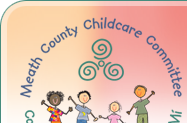
 |

 
The Better Start Access and Inclusion Model (AIM)
The Better Start Access and Inclusion Model (AIM) is a model of supports designed to ensure that children with disabilities can access the Early Childhood Care and Education (ECCE) programme. Its goal is to empower service providers to deliver an inclusive pre-school experience, ensuring that every eligible child can fully participate in the ECCE programme and reap the benefits of quality early years care and education.
AIM is a child-centred model, involving seven levels of progressive support, moving from the universal to the targeted, based on the needs of the child and the service provider. For many children, the universal supports offered under the model will be sufficient. For others, one particular discrete support may be required to enable participation in pre-school, such as access to a piece of specialised equipment. For a small number, a suite of different services and supports may be necessary. In other words, the model is designed to be responsive to the needs of each individual child in the context of their pre-school setting. It will offer tailored, practical supports based on need and will not require a formal diagnosis of disability.
What supports are provided under AIM?
AIM provides a suite of universal and targeted supports across 7 levels.
Universal Supports (Levels 1 - 3 of the Access and Inclusion Model)
Universal supports are designed to promote and support an inclusive culture within pre-school settings by means of a variety of educational and capacity-building initiatives. Specifically:
- A new Inclusion Charter has been developed for the early years sector. Service providers are invited to sign-up to this Charter by producing and publishing their own Inclusion Policy. To support this process, updated Diversity, Equality and Inclusion Guidelines for Early Childhood Care and Education have been produced and a national training programme on the Inclusion Charter and the Guidelines will be delivered by the City and County Childcare Committees. The Diversity, Equality and Inclusion Charter and Guidelines can be accessed here.
- A new higher education programme, "Leadership for Inclusion in the Early Years" (LINC), commenced in September 2016. The Department of Children and Youth Affairs will fund up to 900 places per annum on this programme. Graduates from the programme will be able to take on a new leadership role of Inclusion Co-ordinator within their pre-school setting which will attract an increase of €2 per child per week in the rate of ECCE capitation payable to that setting.
- Finally, a broad multi-annual programme of formal and informal training for pre-school staff in relation to disability and inclusion will be funded by the Department of Children and Youth Affairs and will be delivered by the City and County Childcare Committees, in collaboration with the HSE and other agencies.
Targeted Supports (Levels 4 - 7 of the Access and Inclusion Model)
The supports at levels 1 to 3, when appropriately developed, have been found internationally to be sufficient to support many children with disabilities. However, where a service provider, in partnership with a parent or guardian, considers that some further additional support may be necessary to meet the needs of a particular child, they can apply for one or more of the following targeted supports:
- Expert advice, mentoring and support is available from a team of 50 specialists in early years care and education for children with disabilities. These experts, termed Early Years Specialists (Access and Inclusion), are based in the Better Start National Early Years Quality Development Service.
- A scheme is available for the provision of specialised equipment, appliances and grants towards minor building alterations which are necessary to support a child's participation in the ECCE programme.
- Therapy services, which are critical to a child's participation in the ECCE programme, are available through the model and will be provided by the HSE.
- Finally, where the above supports are not sufficient to meet the needs of a child, service providers, in partnership with parents or guardians, can apply for additional capitation to fund extra support in the classroom or to enable the reduction of the staff to child ratio.
How do I access AIM supports?
Service providers and parents or guardians will be able to submit applications for AIM supports from June 2016 to allow them to plan ahead for pre-school enrolment in September 2016 and thereafter. It should be noted that applications will remain open throughout the year although, in the case of children with more complex disabilities, parents and providers are encouraged to apply early.
Universal Supports (Levels 1 - 3 of the Access and Inclusion Model)
Early Years Practitioners can apply for the new higher education programme, "Leadership for Inclusion in the Early Years" or LINC, at www.lincprogramme.ie.
National training programmes in relation to the Diversity, Equality and Inclusion Guidelines, as well as in relation to disability and inclusion more generally, will be advertised on this website and on the websites of all City and County Childcare Committees. Service providers and practitioners will be able to apply for places on these training programmes via their local City or County Childcare Committee.
Targeted Supports (Levels 4 - 7 of the Access and Inclusion Model)
Advice and support from the Early Years Specialist Service (Access and Inclusion) can be accessed by phone (01-511 7222), e-mail (onlinesupport@pobal.ie) or via the AIM online application form at www.pobal.ie. This form only needs to be completed once to access supports across levels 4, 5, 6 or 7. For information purposes, a copy of the form can be accessed here.
To apply for specialised equipment, appliances or a grant towards minor alterations, service providers, in partnership with parents or guardians, should complete the relevant part of the aforementioned online application form on PIP. For information purposes, a copy of this part of the form can be accessed here.
To apply for therapy services or additional capitation to fund extra support in the classroom, service providers, in partnership with parents or guardians, should complete the online application form on PIP, including the Access and Inclusion Profile section of the form. It is estimated that only 1 to 1.5% of children in ECCE will require, and therefore be eligible for, the Level 7 additional capitation.
Finally, while the Access and Inclusion Model is being introduced from June 2016, full implementation will take time as capacity is built across the sector.
How can I find out more information?
For further Information, visit the Access and Inclusion Model website at http://aim.gov.ie/, or contact us on 046-9073010.
|





























